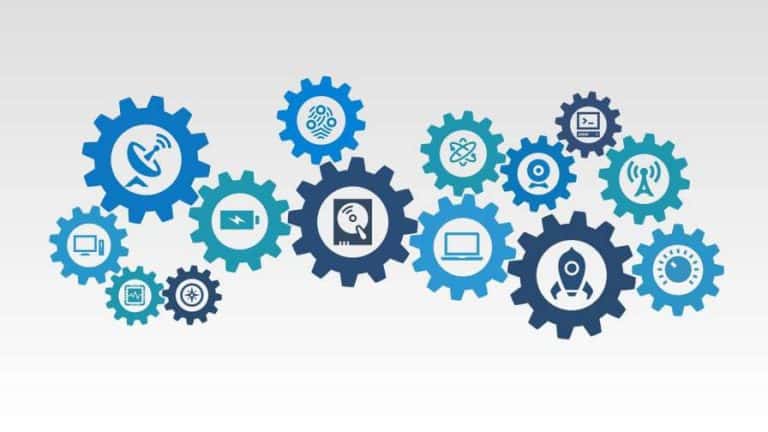8 Key Tips for Answering Phone Calls Professionally
According to Cornell University, United States research, first impressions have the power to influence future relations framing our personality because of an attitude, morals, tastes, and more; our character is now judged by the person with whom we interact.
This study suggests that people take their assumptions about others to new interactions, so let’s imagine that we let our lousy mood affect the first call a random client has with us, and her first experience isn’t that good.
Hardly will the client dissociate our action with the company we work for because we represent the brand values. This article will share with you eight tips that we can use to answer phone calls professionally.
8 Key Tips for Answering Phone Calls Professionally
1. Greet with formal language
When answering a professional call, DO NOT say “Hello” or “Hi”; we should always standardize the way our answers on the telephone, we can say use.
For example, the company name, hello (“good morning,” “good afternoon,” or “good evening”) and ask how we can help.
Not only is it easy to memorize, but it is polite, and the person who is talking to us is assured on how they are talking to the right company or not.
Some companies prefer a more straightforward approach, such as: Good morning, Company X (name company), while others may prefer something more specific, such as Good morning company Y (company name), Emídio Amadebai speaking. How can I help?
2. Do not be Uninhibited
We should never call a client or merely known as love, dear, honey, baby, or any other expression that shows intimacy. Formally and regular work ethic rules, we should call our clients by sir or ma’am. You can treat a well-known client or employee, but if the person identifies himself using the title of doctor, teacher, etc., should they please and treat him this way.
We can also start by looking for the most excellent possible formulation: for kindness, who would like to speak? I am the/her/his secretary… as the case may be. It costs nothing to appear helpful and polite, and of that our job we should do it regardless of our issues.
3. Respect who’s on the other end of the line
Even if it is by phone, we are talking to someone who needs our help. Regardless of the tactic we are using to communicate, and we should always use the basic tag rules.
- Starting by not answer the phone with our mouth full, chew gums, talk or stay typing while speaking (unless the treated subject needs to be registered).
If we want to succeed in answering phone calls professionally, we want to be active listeners; to be an active listener requires that we stop multitasking and dedicate our thoughts and solutions to our clients by being truly present.
Whoever is on the line deserves all our attention, as if sitting in front of us; we shouldn’t use slang, cursing, or abbreviated words during a conversation; remember that the conversations we will have with our clients must be using a formal language.
4. Attention focused on the customer
Some people understand multitasking as a valuable form to avoid wasting time. As we mentioned in an earlier paragraph, some people are not the best way to become an expert if we work in customer service.
If you want to succeed at answering phone calls professionally, please avoid multitasking, or hinting to a customer that you are dealing with more than that one task at the same time (to look busy). That’s rude! Pay full attention to that one customer.
When we focus our attention on the client, we don’t do it in a pilot mode which means we get deeper into our client’s concerns and wishes, leading us to quality, not only how many tasks we attempt per day.
5. Avoid talking Excessively
One of the standards to answer phone calls professionally is to predict and only say what the person demanded and in line with our company’s best interests.
We should never interrupt the person we are talking to; it’s rude and not what a good listener would do; it’s crucial to be patient, not provide insufficient or “dry” answers, and maintain an excellent image to the company.
Finally, our voice tone and speed create a massive difference during a voice call; if we too fast and loud, our message can pass as rude, and we might be understood as being in a rush; an average voice volume and a careful speech would be the nominee.
6. Notify before putting the customer on hold
We must answer the phone whenever possible at the first ring, this shows readiness, and during the call, we may need to check something we can say: just a moment and never wait for a second (because it’s rarely even a second).
Before we put the call on hold, we must notify the person who’s online that we will do, and we must try to be as efficient as possible.
- If our phone doesn’t have standby sound service, we need to avoid side conversations, so we’re not heard and interpreted as unprofessional by the person waiting on the line; instead, we can put it on mute;
- If we are taking too long to transfer the call or give any feedback, we must provide feedback on the actual situation (about our progress or lack of it).
7. Remember and use Names of Customers on a Call
Doing our best never to forget the name of the person we are talking to and the reason for the call. Again, we need to have a notebook and a pen to write down information like that by the phone is a great added value.
8. Wax with elegance
Even if whoever is on the other end of the line has a rude attitude, we should never get angry about it or slide the phone in the person’s face; instead, we should keep the firmness if it is too offensive.
Example: Sir, can I help you with something else? Or Sir, this is the information I have; I’m sorry I can’t help you with anything else.
In general, we should have brief and polite dialogues and never allow them to gain a personal imprint, in those cases, it is essential that go out with education: Well, your message is already noted, I will pass so that so-and-so; Excuse me, but I can’t stay in line, because I have to finish some loose ends urgent.
Conclusion
Answering phone calls professionally is very different from when we are answering a call from someone we know or have intimacy; to keep it professionally, mainly if we see the person we cannot call them by names we usually do, and we have to always keep in mind ethical and moral rules to succeed.
References and Further Reading
How to Answer the Phone Politely








